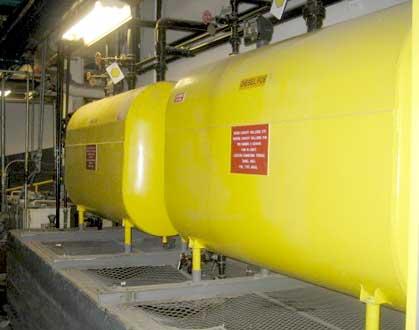Oil Storage and Handling

Columbia University has a number of sources of oil, be it for heating, for hydraulic systems, or even for food. EH&S works with Facilities Management to ensure petroleum bulk storage tanks, drums and oil containers are managed in accordance with all applicable regulations and industry best management practices to prevent releases.
The Environmental Protection Agency's Spill Prevention, Control, and Countermeasures (SPCC) Rule require facilities that store certain quantities of oil that could potentially reach a waterway to maintain a SPCC Plan. Columbia University maintains SPCC Plans for a four campuses. The SPCC plan provides an inventory of the oil storage containers, describes possible spill scenarios, outlines emergency procedures, and details oil handling and inspection requirements. Training is provided to all oil handling personnel, at a minimum, on an annual basis.
Tanks storing petroleum must meet standards established by the New York State Department of Environmental Conservation (NYSDEC). New York's Hazardous Substances Bulk Storage Program provides guidelines and controls for the storage of many different hazardous chemicals. Columbia University complies with the regulations of the Bulk Storage Program as they relate to petroleum containing aboveground and underground tanks. Through trainings, new tank design reviews and inspections, the University enforces the standards for storage and handling of petroleum and prevention of spills.
